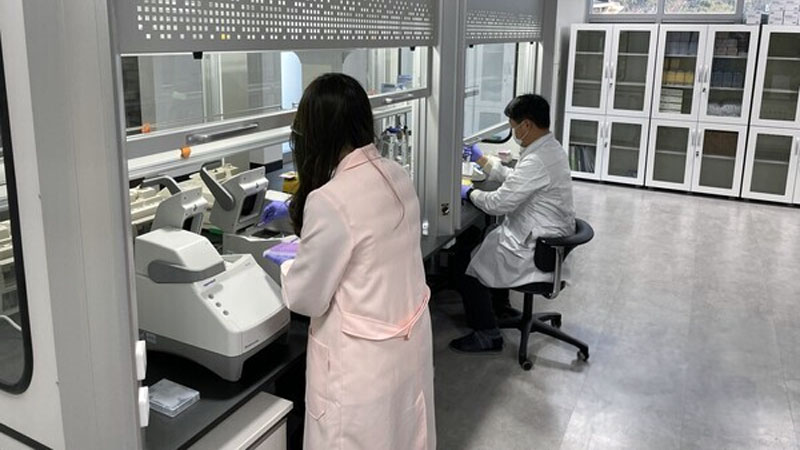Exclusive content

The Jeollanam-do Institute of Marine and Fisheries Science in South Korea has unveiled plans to spearhead the research and development of a cutting-edge diagnostic kit. This kit aims to combat the escalating threat posed by Acute Hepatopancreatic Necrosis Disease (AHPND) and White Spot Disease (WSD), two formidable challenges plaguing shrimp cultivation.
Understanding the Threat
Designated as legal infectious diseases by the Ministry of Oceans and Fisheries, AHPND and WSD have emerged as major concerns due to their devastating impact on shrimp populations. AHPND, in particular, poses a grave danger with infection rates soaring and mortality rates potentially reaching a staggering 100%, particularly among young shrimp. Such alarming statistics categorize it as a type 1 aquatic organism infectious disease, necessitating stringent culling and quarantine measures.
The Jeonnam region stands as the epicenter of shrimp farming in South Korea, contributing a significant 66% of the national production, totaling 9,504 tons. Despite its prominence, the region has been grappling with a surge in infectious diseases, necessitating urgent intervention.
Addressing Challenges Head-On
The challenges posed by the recent upsurge in infectious diseases have been palpable. Last year alone, nine locations in the Jeonnam region reported cases of AHPND, resulting in the distressing culling of approximately 15.22 million young shrimp. In response, the Jeonnam Provincial Institute of Marine and Fisheries Science has initiated collaborative efforts with universities and manufacturing firms to develop effective preventive measures.
The cornerstone of these efforts lies in the development of a sophisticated infectious disease diagnostic kit. Through joint research endeavors, the institute aims to expedite the creation of this vital tool, thereby mitigating losses and bolstering the resilience of aquaculture enterprises. The ultimate goal is to finalize the technology and commence distribution to aquaculture sites by 2025, marking a pivotal milestone in safeguarding the future of shrimp farming.